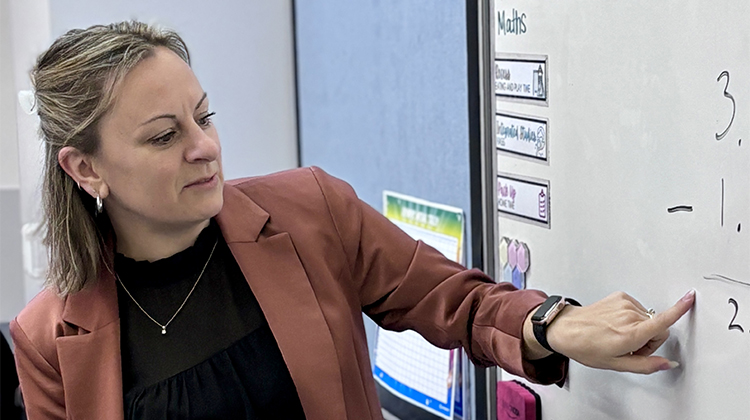The Gap Between Evidence and Application Breached

As schools increasingly turn to evidence-based practices to enhance student outcomes, the challenge remains: how to effectively bridge the gap between knowing and doing.
The Australian Education Research Organisation (AERO), in partnership with a small number of schools across the country, is addressing this with a deliberate and structured approach to implementing evidence-based teaching practices.
One of these schools is Mount Hutton Public School in Newcastle, NSW. It’s in a rapidly gentrifying area with property prices in nearby Warners Bay now touching Sydney levels.
With AERO’s help, Mount Hutton has been implementing explicit instruction across the school. As a result of the sustained focus on implementation, the school has seen improvements in both teacher confidence and student engagement.
“We’ve seen noticeable improvements in teacher confidence and student engagement from working with AERO. They have reinforced our belief that every child matters, every day - and they’re helping us better support all student’s learning,” Principal of Mount Hutton Public School, Ms Trinity Hook said.
“By addressing our specific enablers and barriers with AERO, we’ve seen marked improvements in implementing explicit instruction techniques. It's not one-size-fits-all, and that's why it works so well for us.
“A key lesson we’ve taken away is the importance of gradual, supported change for all involved. We’ve been taking it step-by-step, providing our leaders and teachers with focused time on implementation and professional development.”
AERO has developed a deliberate and structured approach to implementation based on key concepts from implementation research, designed to help schools embed evidence-based practices effectively. It provides a clear structure but has room for flexibility, allowing schools to tailor implementation to respond to their specific needs.
Coinciding with the release of five new explainers and a discussion paper exploring the insights learned so far working with these schools, AERO is encouraged that their approach to implementation is showing promise for strengthening teaching practice.
Key components of AERO’s implementation approach include:
1 Using a staged approach: Implementation is treated as a phased process - Explore, Prepare, Deliver, and Sustain - to facilitate effective planning and continuous improvement.
2 Addressing enablers and barriers: By identifying and responding to factors that facilitate or impede progress, schools can optimize their implementation efforts.
3 Choosing practical implementation strategies: Practical strategies, such as detailed planning, professional learning, and coaching, translate research findings into actionable practices.
4 Identifying implementation outcomes: Monitoring outcomes like acceptability, feasibility, and fidelity helps schools assess and refine their implementation strategies for sustained impact.
"It's not enough to simply know about effective practices," said Dr Jenny Donovan, CEO of AERO.
"The 'how' of implementation is just as important as the 'what'. That's why we've developed an approach that supports schools with embedding evidence-based practices."
"If we can combine evidence about the teaching practices that make a difference, with evidence about how to implement them, we will have a powerful pathway to maximising learning for every student in every school."